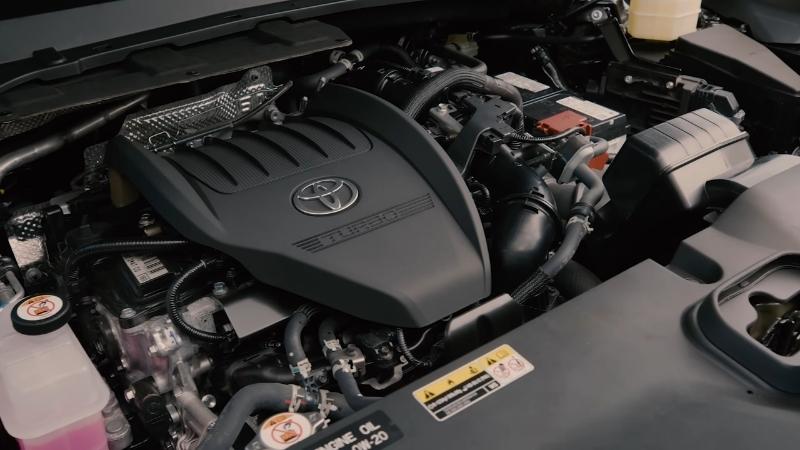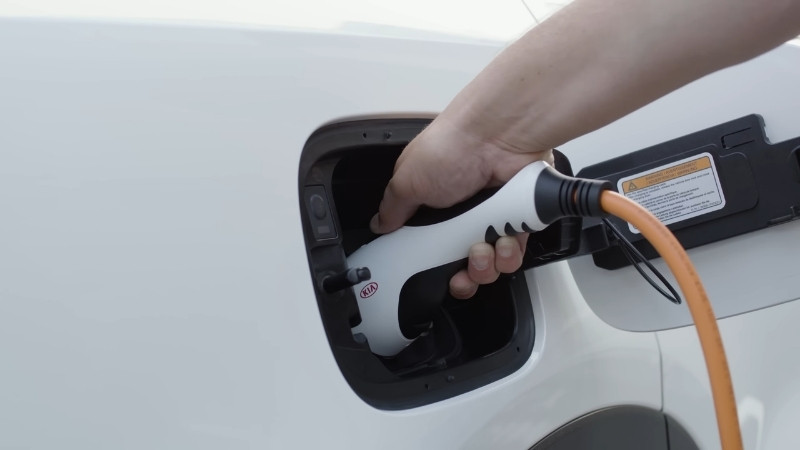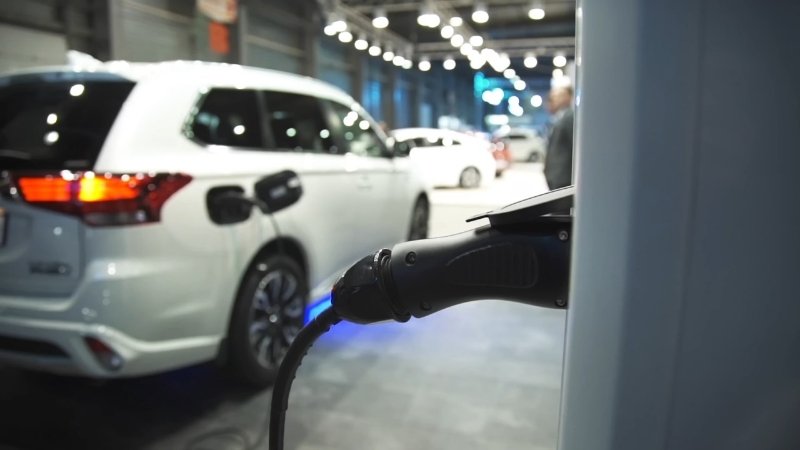Shoppers face an important decision when choosing between hybrid and fully electric vehicles. Marketing slogans and flashy ads do not tell the full story. The choice impacts daily convenience, long-term costs, and driving habits. Some buyers want fuel savings without giving up gas-powered security. Others want a fully electric experience with zero emissions.
Price, infrastructure, charging time, repair costs, and resale value all factor into the decision. Analyzing the real advantages and drawbacks of hybrids and fully electric vehicles helps determine which fits best.
Hybrid vs. Fully Electric Technology
| Upfront Cost | Lower | Higher |
| Fuel Savings | Moderate | Maximum |
| Charging Required? | No | Yes |
| Range Anxiety | None | Possible |
| Maintenance Costs | Lower than gas cars | Lowest overall |
| Environmental Impact | Reduced emissions | Zero emissions |
Hybrids work best for drivers needing gasoline security. Fully electric vehicles offer the lowes
How Do Hybrid Vehicles Work?
Hybrids blend gasoline and electric power. The system switches between a gasoline engine and an electric motor to maximize efficiency.
Types of Hybrid Vehicles
- Mild Hybrid (MHEV): Uses an electric motor for small efficiency boosts, but never drives purely on electricity.
- Full Hybrid (HEV): Switches between gas and electric automatically. Cannot be plugged in.
- Plug-in Hybrid (PHEV): Can charge via an external power source and drive short distances on electricity alone before switching to gas.
How Much Do Hybrid Vehicles Cost?
- Toyota Prius Hybrid: Starts at $27,000, gets 56 MPG combined.
- Honda CR-V Hybrid: Starts at $34,000, gets 40 MPG combined.
- BMW 330e Plug-In Hybrid: Starts at $46,000, offers 23 miles of electric range before using gas.
Hybrids reduce gas consumption, but still require refueling. They offer a transition between gas-powered and fully electric driving.
How Do Fully Electric Vehicles Work?
Electric vehicles (EVs) use battery packs to power an electric motor. There is no gasoline engine. EVs must be charged through a wall outlet, home charger, or public charging station.
How Much Do Fully Electric Vehicles Cost?
- Tesla Model 3: Starts at $39,000, with a 272-mile range on a full charge.
- Chevy Bolt EV: Starts at $27,000, with a 259-mile range on a full charge.
- Ford Mustang Mach-E: Starts at $42,000, with a 250-312 mile range, depending on the model.
Prices for EVs remain higher than hybrids, but incentives help offset costs. Battery advancements continue improving affordability and range.
Advantages of Hybrid Vehicles

1. Eliminates Range Anxiety
Hybrids never leave drivers stranded due to low battery levels. When the battery depletes, the gasoline engine takes over. Unlike fully electric vehicles, hybrids never require finding a charging station.
2. Lower Upfront Cost Compared to EVs
Most hybrids cost less than fully electric vehicles. The absence of a large battery pack keeps pricing competitive. Even plug-in hybrids, which allow some electric driving, remain cheaper than full EVs.
- Toyota Corolla Hybrid: $24,000
- Hyundai Elantra Hybrid: $27,000
- Honda Accord Hybrid: $32,000
These models cost thousands less than comparable EVs. Lower starting prices attract buyers hesitant about electric technology.
3. Gas Stations Are Everywhere
Refueling takes minutes, unlike charging an EV. Road trips and long-distance travel remain convenient. Hybrids work well for drivers without access to home charging.
4. Maintenance Costs Stay Manageable
Hybrid engines do not wear out as quickly as traditional gasoline engines. Brakes last longer due to regenerative braking, which slows the car using the electric motor instead of brake pads.
Estimated Maintenance Savings Over 10 Years
- Oil Changes: $500-$1,000 saved compared to gas-only cars
- Brake Pad Replacements: $800-$1,500 saved due to regenerative braking
- Engine Wear and Tear: Fewer expensive repairs over time
Disadvantages of Hybrid Vehicles
1. Still Dependent on Gasoline
Hybrids cannot run purely on electricity indefinitely. Gas price fluctuations affect operating costs. Environmental benefits fall short of full EVs.

2. Higher Maintenance Costs Than EVs
Although hybrids cost less to maintain than gasoline cars, they still require engine-related services. Oil changes, spark plug replacements, and exhaust system maintenance still apply.
3. Limited Electric Range in Plug-In Hybrids
Most plug-in hybrids offer 15-40 miles of electric range before switching to gasoline. For drivers who want full electric driving, hybrids do not provide the same experience as EVs.
Advantages of Fully Electric Vehicles

1. Zero Gasoline Usage
EVs never require gas. Charging at home costs 50%-75% less per mile than refueling a gasoline car.
2. Cost Per 100 Miles:
- Gasoline Vehicle: $12-$15
- Hybrid Vehicle: $7-$10
- Electric Vehicle: $3-$5
3. Lower Long-Term Maintenance Costs
EVs do not require oil changes, spark plugs, or timing belts. The lack of an engine means fewer mechanical failures.
10-Year Estimated Maintenance Savings:
- Oil Changes: $1,500 saved
- Transmission Repairs: $2,000 saved
- Brake Replacements: $1,200 saved
The simplicity of electric drivetrains reduces repair costs.

4. Instant Torque and Smooth Performance
Electric motors deliver instant power. Acceleration feels smoother and faster than hybrids.
- Tesla Model S Plaid: 0-60 MPH in 1.99 seconds
- Ford Mustang Mach-E GT: 0-60 MPH in 3.8 seconds
- Chevy Bolt EV: 0-60 MPH in 6.5 seconds
Disadvantages of Fully Electric Vehicles
1. Charging Infrastructure Gaps
Public charging networks continue expanding, but gaps remain. Long road trips require careful planning. Not every city has a strong charging network.
2. Charging Station Costs & Times:
- Home Charging (Level 2): $500-$1,500 installation, 8-10 hours for full charge
- Public Fast Charging: $0.25-$0.50 per kWh, 30-45 minutes for 80% charge
- Tesla Supercharger: $0.28 per kWh, 15-25 minutes for 200+ miles of range
3. Higher Upfront Cost
Electric vehicles cost more than hybrids because battery production is expensive. Even with tax credits or rebates, prices remain higher.
- Tesla Model 3 (EV): $42,000
- Hyundai Ioniq 5 (EV): $41,000
- Ford Mustang Mach-E (EV): $44,000
4. Battery Degradation and Replacement Costs

Electric vehicle batteries lose capacity over time, reducing driving range. On average, batteries degrade 1.5%-2% per year, meaning a car that starts with 300 miles of range may have around 270-280 miles after five years.
Replacement Costs
- Chevrolet Bolt EV: Around $16,000
- Tesla Model S: $12,000-$20,000
- Nissan Leaf: $5,000-$9,000
Most manufacturers cover 8 years or 100,000 miles, ensuring at least 70% capacity remains within that period. When it comes to buying or selling a used car, selling an EV is often more difficult because they lose value faster than hybrids. Rapid battery advancements, fluctuating incentives, and concerns about long-term battery life cause depreciation to hit EVs harder, making resale prices lower compared to hybrids.
FAQs
What Are the Most Popular Electric Vehicles in 2025?
The best-selling EVs in 2025 include:
- Tesla Model 3 – Affordable entry-level EV with strong range
- Hyundai Ioniq 5 – Stylish, practical, and fast charging
- Ford Mustang Mach-E – Sporty electric SUV with good range
- Chevrolet Equinox EV – Affordable with solid range
- Rivian R1S – High-end electric SUV built for adventure
What Are the Most Popular Hybrid Vehicles in 2025?
The top hybrid models for 2025 include:
- Toyota Prius – Still a leader in fuel efficiency
- Honda CR-V Hybrid – Practical SUV with excellent mileage
- Toyota RAV4 Hybrid – Versatile, spacious, and efficient
- Hyundai Tucson Hybrid – A newer favorite for SUV buyers
- Ford Escape Hybrid – Reliable and budget-friendly
How Long Do Hybrid Batteries Last Compared to EV Batteries?
Hybrid batteries generally last 8-15 years, but because hybrids rely on gas engines, their batteries endure less strain. EV batteries last 10-15 years but degrade faster with heavy fast-charging use.
Are EVs Cheaper to Insure Than Hybrids?
No, EVs usually cost more to insure due to higher repair costs. Battery replacement and advanced technology make repairs expensive. Hybrids, with simpler technology and lower replacement costs, often have lower insurance premiums.
Can Hybrids Drive in Electric Mode Only?
Standard hybrids cannot run on electricity alone. Plug-in hybrids (PHEVs) can, but only for 15-50 miles before switching to gasoline. Fully electric vehicles remain the only option for gas-free driving.
Last Words
Hybrids work best for drivers needing gasoline security. Fully electric vehicles offer the lowest costs over time but require charging infrastructure.
Every buyer must weigh convenience, pricing, and long-term ownership factors before deciding. EV technology continues improving, but hybrids remain a practical middle ground.
